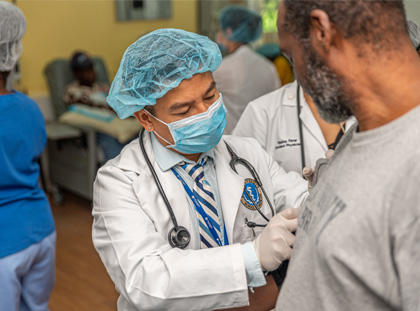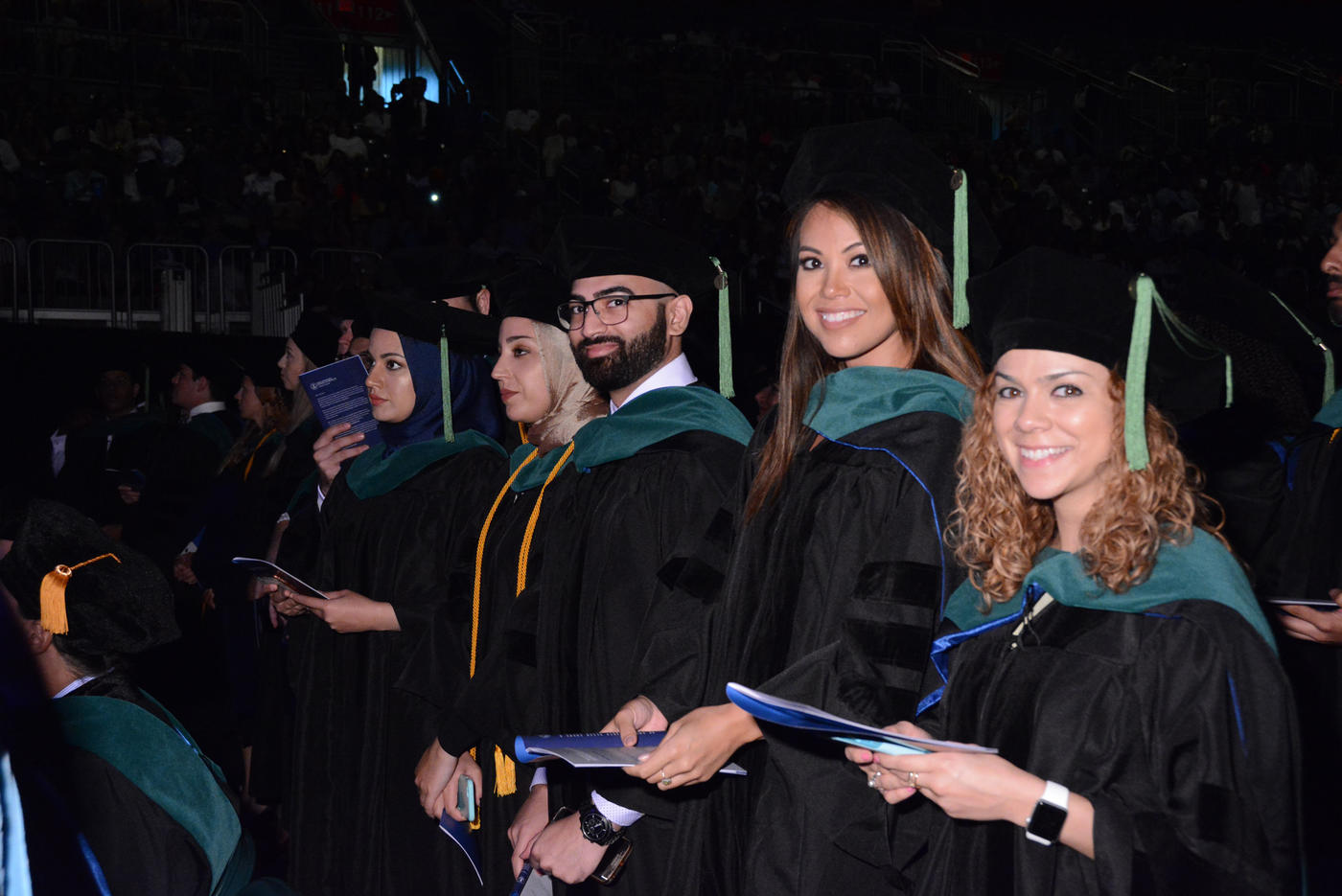Commonly Asked Questions About the MCAT
Students interested in going to medical school know that one big hurdle to jump beforehand is the Medical College Admission Test (MCAT). This usually brings up the question: what is the MCAT? What MCAT subjects do you need to study for? Along with several other MCAT FAQs.
The MCAT is a standardized, multiple-choice exam administered by the Association of American Medical Colleges (AAMC).
The test is required for students wanting to enter a four-year medical school—such as the Ross University School of Medicine (RUSM). High MCAT scores are crucial to acceptance in medical school. (RUSM and other schools have temporarily waived the MCAT requirement for some applicants because of COVID-19-related limitations on test availability.) The test helps medical school admissions offices assess a student’s problem-solving skills, critical thinking, and knowledge of natural, behavioral, and social science concepts and principles prerequisite to the study of medicine.
With so much riding on the MCAT, prospective medical students no doubt have a lot of questions about the test. Below are answers to some of the most frequently asked questions—the MCAT FAQs.
What does the MCAT cover?
The MCAT covers content found in introductory-level courses at most undergraduate institutions, including biology, general and organic chemistry, and physics, as well as first-semester biochemistry, psychology, and sociology.
Who takes the MCAT?
Students who plan to apply to a health professions school should take the MCAT. Such schools include programs granting Doctor of Medicine (MD) degrees—such as RUSM—Doctor of Osteopathy (DO) degrees and Doctor of Podiatric Medicine (DPM) degrees. Students bound for any other health-related program that will accept MCAT results may also take the test. At MCAT registration, students are required to verify their intention to apply to health professions or other health-related programs.
What does the MCAT cost?
Another common MCAT FAQ is how much does it cost to take the exam? The normal cost to take the MCAT is $320, but some students may qualify for a reduced fee assistance program, which drops the student’s cost to $130. Students taking the MCAT outside the United States or Canada must pay an additional $115 international fee.
When do students take the MCAT?
Students often inquire when to take the MCAT. The MCAT is generally taken a year prior to applying for medical school. The exam is offered multiple times per year, but students should begin preparing long before testing day. Students should take time to study MCAT preparation guides and take MCAT prep courses and MCAT practice tests. Students are recommended to begin preparing at least six months in advance. Students should also be aware that registration takes place some three to four months before the MCAT testing date.
Where do students take the MCAT?
The MCAT exam is offered at hundreds of testing sites in the United States, Canada, and around the world. The testing company Pearson VUE hosts MCAT exams at Pearson VUE Authorized Test Centers or at Pearson Professional Centers—secure sites made specifically for high-stakes academic tests.
What are the COVID-19 precautions and protocols for taking the MCAT?
As of May 2021, students are required to wear masks at all MCAT testing centers, and there are no fees for students who need to cancel or reschedule their exams.
What happens on MCAT test day?
Many students wonder what is the MCAT test day like? Students arrive at the MCAT testing center and check in with a test administrator. Students must present valid identification before signing in—they must also have their photograph taken and their palm digitally scanned. The testing center provides the items needed to take the MCAT—a noteboard booklet, fine point marker, storage key, and foam earplugs. All notes, cell phones, bags, or other personal items are strictly prohibited. There are two ten-minute breaks during the exam, and one thirty-minute mid-exam break. During the breaks—which are optional—students may access food, water, or necessary medication.
How is the MCAT organized?
The MCAT has four sections:
- Biological and Biochemical Foundations of Living Systems (BBLS)
- Chemical and Physical Foundations of Biological Systems (CPBS)
- Psychological, Social, and Biological Foundations of Behavior (PSBB)
- Critical Analysis and Reasoning Skills (CARS)
How is the MCAT scored? Each section is scored from a low of 118 to a high of 132, with a midpoint of 125. Scores for the four sections combine for the total score, which ranges from a low of 472 to a perfect 528. The midpoint is 500. MCAT scores include a percentile rank, which shows how a student’s scores compare to other test takers. A 125 score on a section or an overall 500 score ranks at 50 percent—exactly in the middle with half doing better, half doing worse. The higher the percentile rank, the better the student did on the exam. MCAT scores and ranks are released 30 to 35 days after the exam.
What is the duration of the MCAT?
Many students are curious to know the answer to this commonly asked MCAT FAQ: how long is the MCAT? The BBLS section of the MCAT has 59 questions to be answered in 95 minutes. CPBS has 53 questions and a 90-minute time period. PSBB and CARS both have 59 questions over 95 minutes. Quick math: students have 6 hours and 15 minutes to answer 230 questions. Students may finish a section before the allotted time expires and move on to the next section without waiting. Students may also skip breaks. A confident and quick test taker may finish the MCAT in fewer than six hours.
How high a score is needed on the MCAT?
In the United States for the 2020-2021 academic year, AAMC data shows that students accepted to medical schools had an average MCAT score of 511.5. This is an excellent score, but such high standards exclude numerous exceptional students. Matriculant (accepted student) MCAT averages are slightly lower among Caribbean medical schools, which tend to take a more holistic approach to admissions. This process considers an applicant as a whole person rather than a mere set of grades and scores.
How often can students take the MCAT?
It is important to know how many times can you take the MCAT. To achieve higher scores, students may take the MCAT more than once—up to three times in one year, four times in two years, or seven times in a lifetime.
Do students outside the United States and Canada take the MCAT?
Students outside the United States and Canada may take the MCAT, but similar tests from other countries may accompany or—at times—replace the MCAT. In the United Kingdom, medical school hopefuls take the University Clinical Aptitude Test (UCAT). In India, they take the National Eligibility cum Entrance Test (NEET). In Australia, students take the Graduate Medical School Admissions Test (GAMSAT).
Can students discuss the MCAT after taking it?
At registration, students sign an examinee agreement that prohibits them from disclosing the contents or exact order of the test, describing questions in detail, or speculating on what passages are field tests or experimental items. Test takers may, however, comment on the general test experience.
Ross University School of Medicine combines medical science, clinical training, and soft skills support in a state-of-the-art campus that keeps learning relevant, contemporary, and competitive. Take the MCAT, and then take the next step toward becoming a physician: apply for admission to RUSM.
Related resources:



